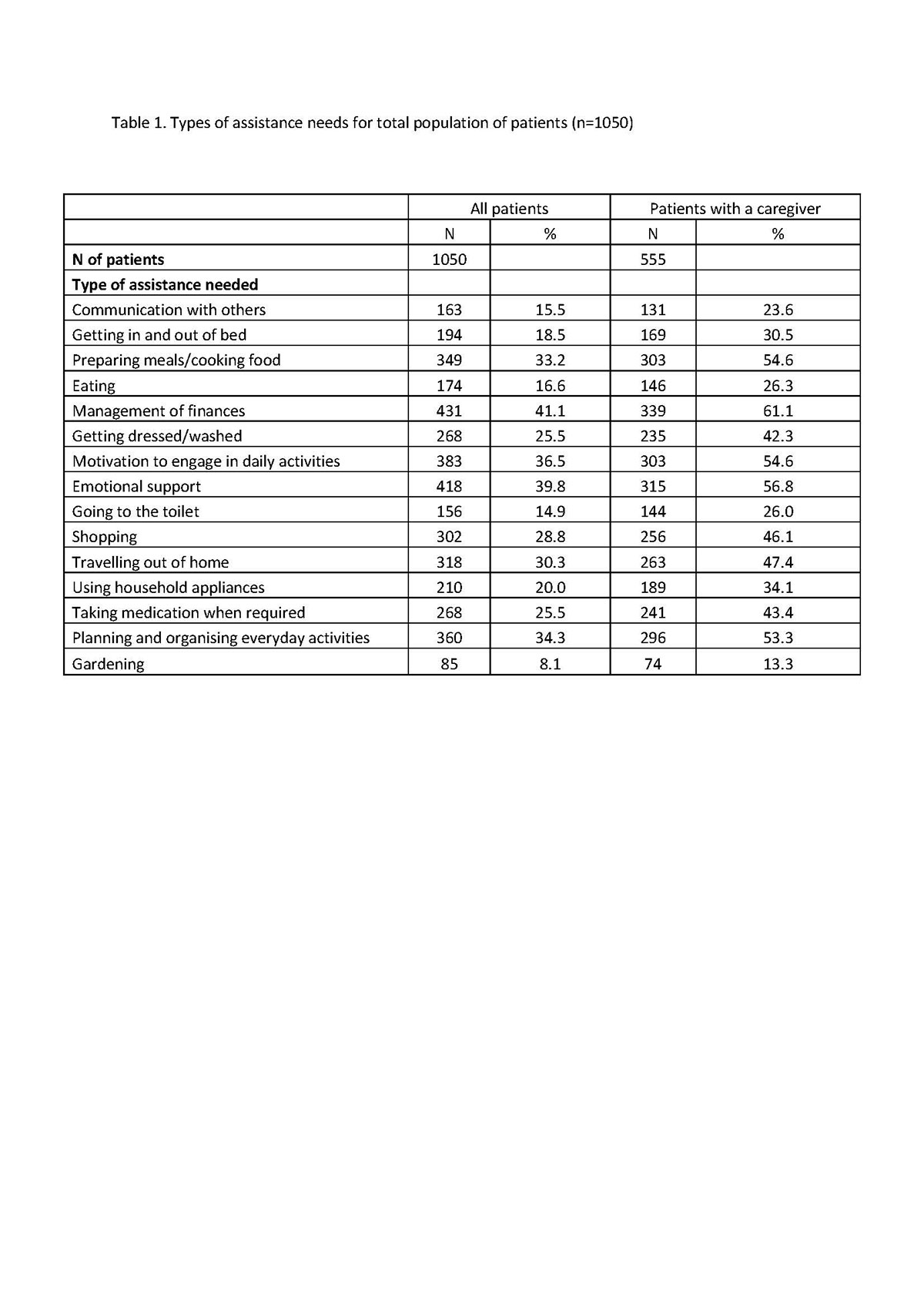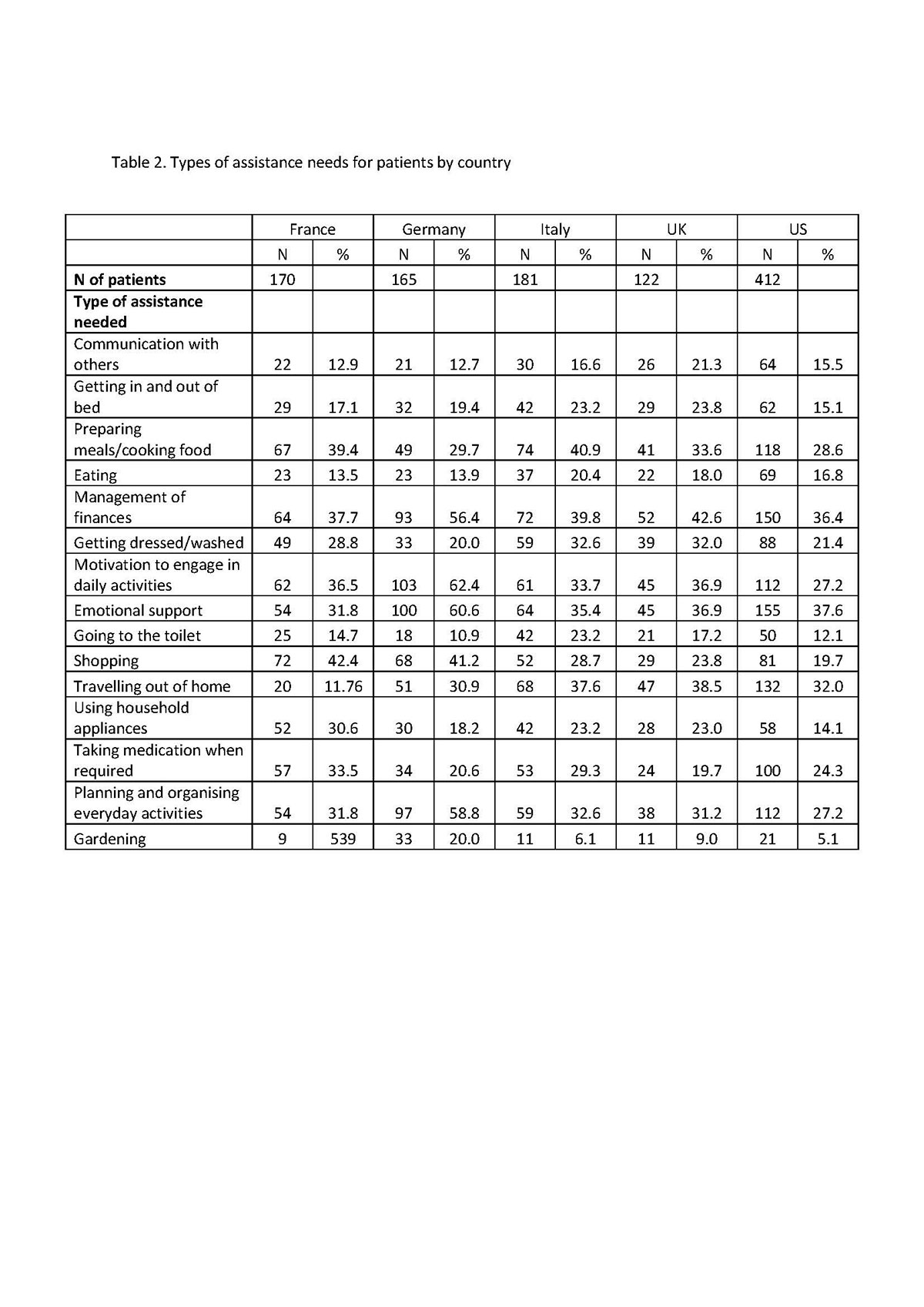Session Information
Date: Monday, September 23, 2019
Session Title: Huntington’s Disease
Session Time: 1:45pm-3:15pm
Location: Agora 3 West, Level 3
Objective: To describe the assistance needs of people with Huntington’s disease (HD) across different countries.
Background: HD is a genetic, neurodegenerative and ultimately fatal disease that limits independence as it progresses. Over time, most HD-affected individuals require assistance with daily activities; however, little is known about the type of care they require, as well as differences in care requirements across countries.
Method: This is a retrospective analysis of data from the Adelphi HD Disease Specific Programme – a cross-sectional survey of neurologists and patients conducted in France, Germany, Italy, the UK and the US July–October 2017 including perspectives from physicians, patients and caregivers. Here we describe patient- and physician-reported care and assistance for individuals impacted by HD.
Results: Data were available for 1,050 patients across the five countries. Of those, 555 (52.9%) were reported by the physician to have a caregiver (Table 1). Across all patients, the most common physician-reported type of assistance was help with managing finances (41.1%), followed by emotional support (39.8%), motivation to engage in daily activities (36.5%), planning and organising everyday activities (34.3%) and preparing meals (33.2%). For patients with a caregiver, assistance types were ranked in a similar order, although at higher rates (managing finances, 61.1%; emotional support, 56.76%; meal preparation, 54.6%; daily activities, 54.6%; planning, 53.3%). The most common needs varied across countries (France: shopping, 42.4%; Germany: daily activities, 62.4%, Italy: meal preparation 40.9%, UK: finance management 42.6%, US: emotional support: 37.6%) (Table 2). Neurologist-perceived disease severity distribution was similar in Italy, UK and the US. Germany had the highest number of mild patients and France the highest number of severe patients. Of the 52 patients who responded with care-giving needs, 40 (76.9%) reported needing assistance and only 26 (65.0%) reported receiving assistance.
Conclusion: Assistance needs of people with HD vary with the severity of the disease, cultural differences, family support and other factors. The results of this survey show that a high proportion of individuals are not receiving the assistance they require. A multidisciplinary group can help patients with HD and their families to access appropriate care based on their individual needs.
To cite this abstract in AMA style:
K. Raimundo, R. Tan, T. To, J. de Courcy, U. Ondhia, H. Rickards, M. Nance. Patient and physician perspectives on the care and assistance needs in Huntington’s disease [abstract]. Mov Disord. 2019; 34 (suppl 2). https://www.mdsabstracts.org/abstract/patient-and-physician-perspectives-on-the-care-and-assistance-needs-in-huntingtons-disease/. Accessed February 4, 2026.« Back to 2019 International Congress
MDS Abstracts - https://www.mdsabstracts.org/abstract/patient-and-physician-perspectives-on-the-care-and-assistance-needs-in-huntingtons-disease/


